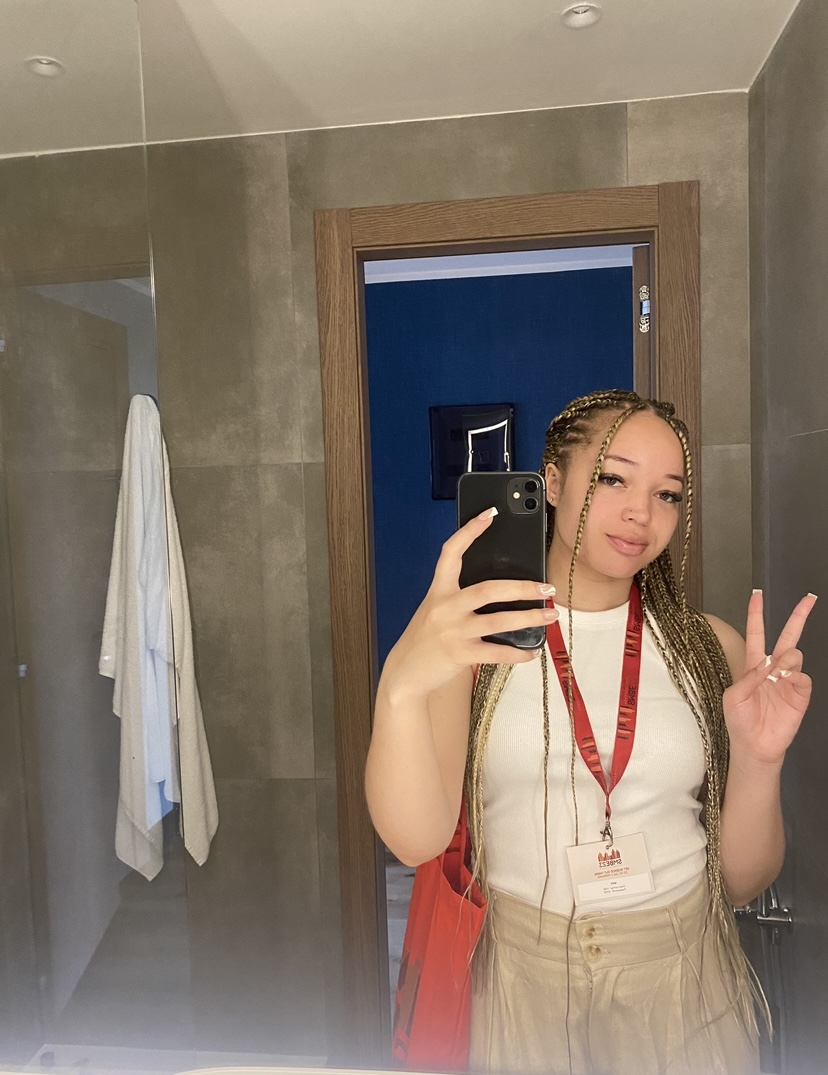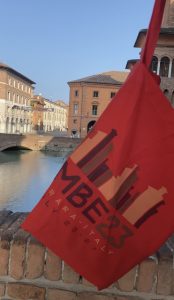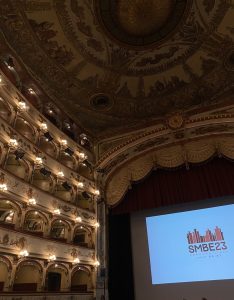
February 29, 2024, by stxnn8
A first-timer’s guide to international conferences
Nkem Nwaobi, PhD student
Embarking on my first conference was a journey filled with excitement, nervousness and countless opportunities for growth. This past summer I attended the Society for Molecular Biology and Evolution (SMBE) conference in Italy, it was eye-opening and frankly quite scary. In this blog I will share my guide to your first international conference and why you should take the leap, and invaluable lessons I have learned since going.
Nerves and expectations
As the date fast approached, I was incredibly excited, but also nervous. The thought of networking with professionals from around the globe, discussing an area of science I am so new to was daunting. The size of SMBE is a marvel, the conferences are renowned for bringing together leading minds in molecular biology and evolution. The pressure was on, but I knew the potential benefits far outweighed my nerves.
The experience
The atmosphere at SMBE made me excited for future conferences. I saw scientists bump into friends they had made through previous projects, and people who attend every year. It became apparent that networking is a cornerstone of this conference. Connecting with fellow researchers, professors and industry experts is as essential as attending the seminars. Who knows, you might even make a friend! I myself made a friend on the first day of the SMBE conference, we ventured to a nearby town to enjoy the beach together following the final day of the conference.
You can be sure to expect:
- Diverse perspectives: people from all over the world will attend, bringing with them different opinions and styles of research.
- Cutting-edge research: conferences showcase the latest research advancements in your area of interest.
- Networking opportunities: through workshops or social events, these interactions can lead to collaborations, mentorships, professional relationships – and even friends!
- Poster sessions: allows researchers to present their work visually, this is your chance to interact with others and get to know their science on a deeper level.
What I learned
Conferences provide a platform to share and gain insights that transcend traditional academic boundaries. Networking is initially intimidating but these are key points to keep in mind
- Building connections is fundamental: relationships formed at conferences can lead to collaborative projects.
- Embrace the non-local aspect: consider incorporating some vacation time into your schedule to make your travel more environmentally conscious and enjoyable.
- It is okay not to know things: it is encouraged to ask questions.
- If possible, present your work: allows you to contemplate your work from a different perspective through insightful questions.
Conference funding
Verify whether your university or PhD program provides financial assistance or travel grants. In certain cases, you may have to cover the expenses from your PhD budget. Larger conferences usually have funding opportunities for students; just review the eligibility criteria on their website. Self-funding is also a viable option, if that suits you.
Accessibility
I have had excellent experiences with conferences, as they are eager to cater to specific requests where possible, just make sure to reach out to them in advance. Many strive to enhance accessibility through various means, and some even provide free childcare services during the event. Talk to the university about how you can request support when relaying needs to conference organisers.
How to find out about conferences
Your supervisor(s) are likely aware of the most suitable societies for you to join and can provide recommendations for conferences. Consult with friends or colleagues in your research field. Lastly, the internet is a valuable resource with abundant information on conferences.
Final verdict
I am normally a quite introverted person, and I thought the conference would be overwhelming, but actually, the fact there are so many people means that you don’t have to stick to the same person/people throughout the event. This allows you to spread your wings a little as you learn how to network. Remember, conferences are full of people who want to have a positive experience, just like you.
If you are a currently a PGR student, visit the careers events page on the Careers and Employability Service website to discover opportunities that will help you grow and expand your network.
No comments yet, fill out a comment to be the first




Leave a Reply